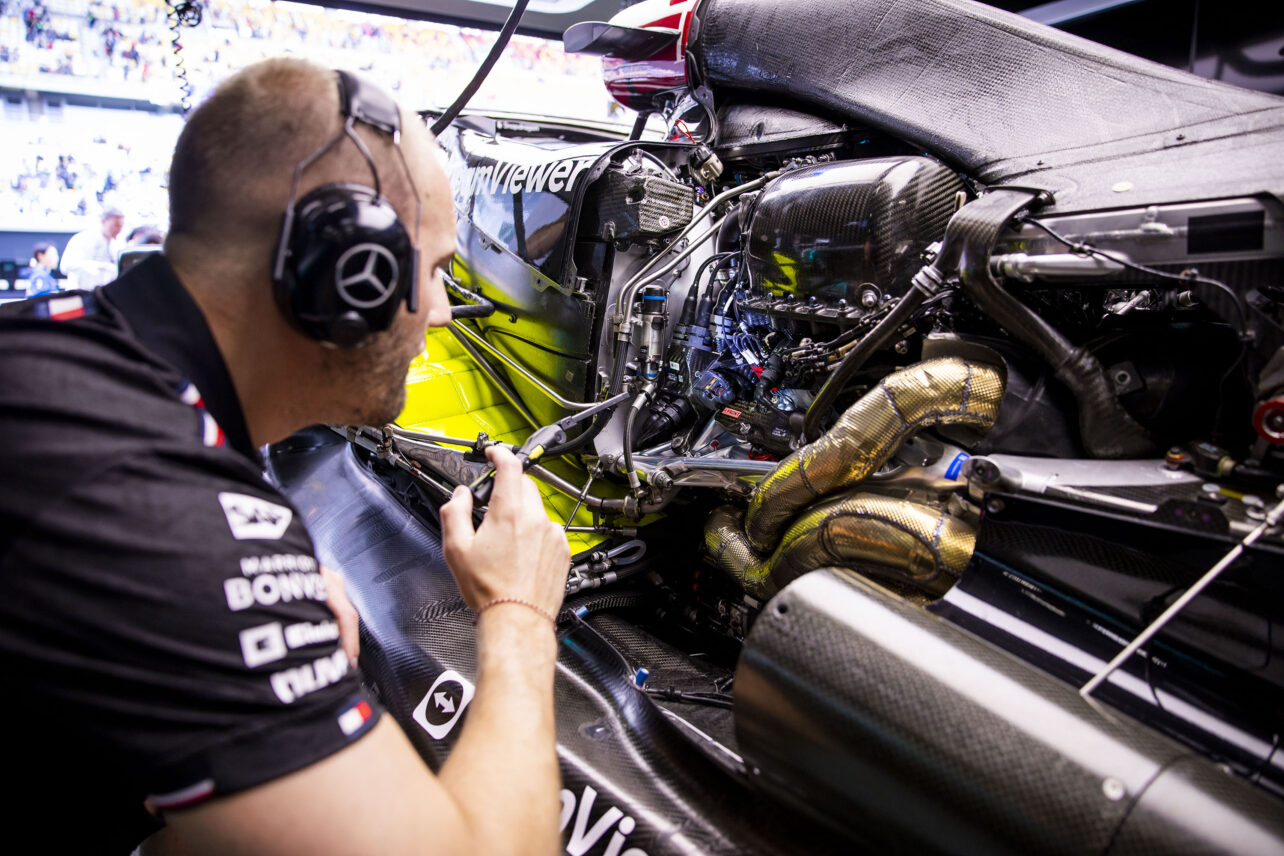Hi friends,
Easter is here, and that means I get a five day weekend. And I’ll need it with all the racing that’s going on. Formula 1, Formula 2, F1 Academy, WEC, NASCAR, Super Formula. Plenty to choose from.
Top Story of the Week: The Engine Debate Swings Back – 2029 Is the New Earliest Target
It’s been a roller‑coaster fortnight for F1’s engine future. Two weeks ago, the talks suggested an accelerated return to glorious V10 noise. But after a crunch summit in Bahrain, the FIA and the manufacturers have agreed to park any wholesale change until at least 2029 – and even that date is pencilled in, not inked.
Back in mid‑March, reports claimed the sport might scrap the incoming 2026 hybrids, extend the current rules and jump straight to naturally‑aspirated V10s in 2028. Reports that received a very mixed reception among the teams.
Those rumours snowballed through the Australian and Japanese rounds, helped by the revelation that the FIA had a dedicated working group studying a V8/V10 concept.
During the Bahrain summit, FIA representatives and the engine manufacturers discussed whether to fast‑track a new engine formula.
The result? The 2026 rules are staying, although tweaks to cost caps, sporting regs and battery deployment could be rushed through to head off the worst fears about the new engines’ impact on racing from 2026 onwards. A new engine concept will be discussed, but not before 2029 at the earliest – and potentially not until the original 2031 expiry.
The manufacturers remain split over moving to a V8/V10 concept. Ferrari and Red Bull are said to be in support, with reports citing setbacks in their development of the 2026 power units, which they fear could put them on the back foot throughout the entire five-year cycle.
On the other side are Audi and Honda who have flat-out opposed the switch, with Audi saying “The upcoming regulation changes, including the new hybrid power unit regulations set for the 2026 season and beyond, were a key factor in Audi’s decision to enter Formula 1.”
Although talk of a new engine is tabled for now, the manufacturers, the teams and the FIA will continue discussing potential changes to the 2026 package, most notably a 90/10 combustion-to-electric split and a KERS-style hybrid system.
But the big unanswered question is configuration. A V10 still has romance, yet most engineers quietly favour a lighter V8. For now, the governing body has left the choice “open”.
But why the pause? Money and timing. Christian Horner spelled it out: introducing another brand‑new engine two years after 2026 is “pretty much impossible” without compensation for parallel programmes.
Add in the PR optics – Mohammed Ben Sulayem needed a Plan B in case the hybrids flop, but he can’t afford to spook Audi or Honda – and the pause button makes perfect sense.
For now, the sport is locked into its 2026 gamble. If the hybrid cars race well, V10 (or V8) fever will cool until the 2030s. If they flop, the 2029 back‑stop is ready and waiting.
In other words, the engine saga isn’t over; it’s merely on hold – and the next two seasons will decide what happens.
The Rest of the Stories This Week:
- Former FIA Deputy President of Sport Robert Reid has detailed his exit and his concerns over the way the FIA is being run
- Imola could be leaving the Formula 1 calendar
- Mercedes, Audi and Honda are against early switch to v10 engines
- The FIA in a statement regarding the engine discussions: “A level of electrification will always be part of any future considerations”
- Former Aston Martin Technical Director Dan Fallows is leaving the organisation entirely
- Domenicali on the engine discussions: “I personally believe it’s crucial that the system allows for a faster recovery if a manufacturer falls behind significantly”
- Stefano Domenicali says plans for a GP in Africa are “not there yet”
- Managing Director of Jaguar’s Formula E team, James Barclay, will leave the team after 12 years
- Reigning Moto GP Champion Jorge Martin could be out for around three months after a crash in the Qatar GP
- Genesis Magma Racing revealed the livery of their WEC Hypercar, the GMR-001
- Porsche has revealed their next evolution of the 911 GT3 R
- Maserati will supply the Safety Car and Leading Car for the 2025 GT World Challenge Europe
- A Portuguese football team introduced a special jersey in tribute to Ayrton Senna, honouring the 40th anniversary of his first race win
That’s it for this week, thank you for being here.
If you want to support me, you can help fuel the snack addiction that powers me through compiling these lists and vetting the stories – you can do so on Buymeacoffee or Patreon.
